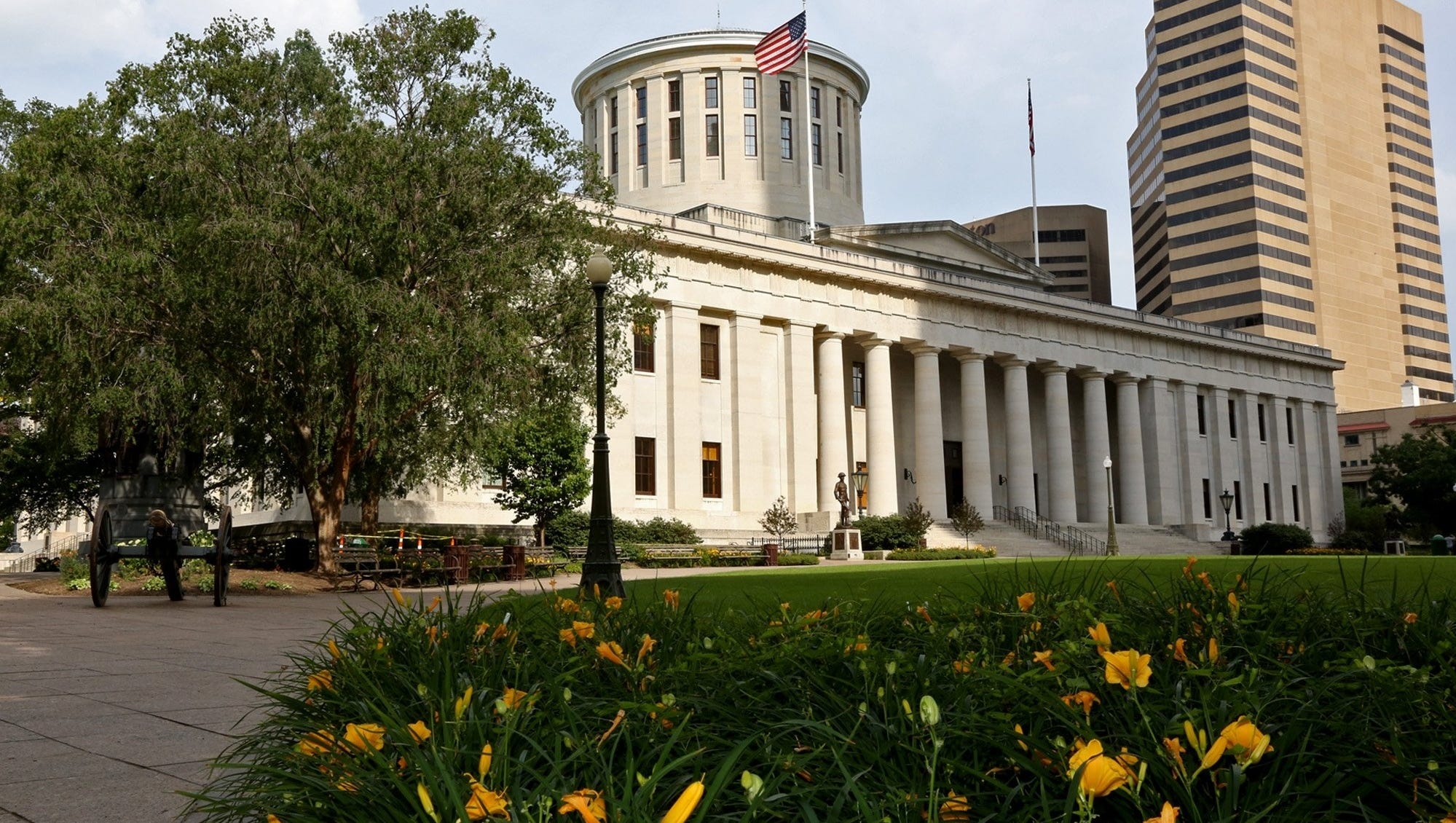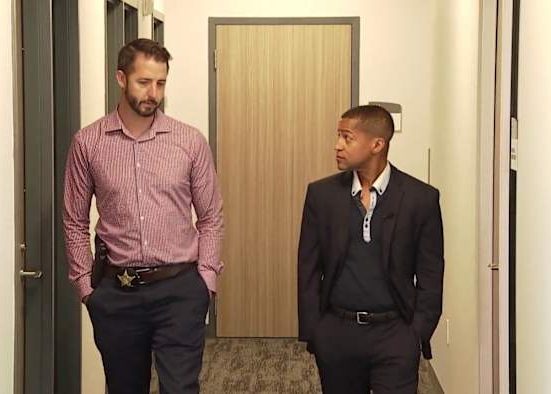
Explaining how Ohio’s budget affects you
Statehouse reporter Jessie Balmert breaks down the newly signed two-year state budget and talks about how it impacts Ohioans.
A county government panel could get greater authority to lower your property taxes by reducing the amount collected by schools, libraries and other entities if state lawmakers proceed with a plan to override Ohio Gov. Mike DeWine’s veto.
On July 1, DeWine line-item vetoed state budget provisions that would give authority to a county’s three-member budget commission to reduce millage collected by taxing authorities like schools and libraries. The Ohio House plans to return July 21 to vote on an override of DeWine’s veto on that change and others, and the Ohio Senate could be close behind.
In his veto message, DeWine said the budget commission provision “breaches the approval of such millage by the voters,” and also would pose challenges for the Ohio Department of Taxation calculations. If enacted, the change would empower commissions in Ohio’s 88 counties.
The provision was among a group of budget proposals meant to address rising property taxes. DeWine also vetoed a plan to force school districts with large cash balances to return money to property owners, though lawmakers haven’t said they plan to override that decision.
Opponents say the change, especially for school districts, could cause confusion and a lack of representation on tax changes. Others, like Ohio Library Council Executive Director Michelle Francis, say “communities deserve local control and respect for the votes they’ve cast.”
“Allowing a three-member county commission to override the will of local voters not only undermines democratic decision-making, but also puts critical library services at risk,” Francis said.
But Rep. David Thomas, R-Jefferson, said something needs to be done to address rising property taxes.
“No local government is going to voluntarily reduce their taxes unless there’s some pressure to do so,” Thomas said. “And the taxpayers really have nowhere to turn. Giving (the budget commissions) more authority will be the check that I think our taxpayers are wanting.”
What is a county budget commission?
Budget commissions are a feature of county government established in state law, made up of the county auditor, treasurer and prosecutor.
The function of the county budget commission is to verify all tax levies are properly authorized and allocated and to determine annual property tax rates for each taxing authority.
The amount of taxes depends on how many mills are levied on a property. One mill equals $1 collected in taxes for every $1,000 of the property’s taxable value. However, the actual rate you pay is based on “effective millage.” That decreases to reflect the rise in value, so the actual dollar amount collected doesn’t change. Some taxes, called “inside millage,” which amount to less than 10 mills, do, however, increase with rising home values.
County budget commissions are “kind of a rubber stamp,” said Matt Nolan, Warren County auditor and president of the County Auditors Association of Ohio. He said expanding the authority of the commissions is something that county auditors support, calling the change more like a scalpel to local taxes rather than a chainsaw.
“We’re proponents of it, with the understanding that it’s not going to result in large tax decreases anywhere,” Nolan said. “I think the legislature has the idea we’re going to come in and burn budgets and cut everybody’s taxes. That’s not what it is, but it gives us another tool.”
Thomas said the proposal will “essentially return the budget commission back to its original intent, which is to be that strong check for the taxpayers over tax rates.” He said that in most counties, the county prosecutor interprets the existing law in a way that limits their authority.
Nolan said Warren County’s budget commission already exercises greater authority to adjust millage rates. Warren County has lowered millage rates more than any other county in the state, he said, but it’s typically a collaborative process with the taxing agency.
“I get that doesn’t work in every county. I like having the tool available that if we ran into places where it needed to happen, we’d have the ability to do it,” Nolan said.
Franklin County Auditor Michael Stinziano said that he would welcome additional authority for the county budget commission. However, he stressed that it won’t produce significant property tax relief for property owners.
“I’m not sure or confident it’s what I hear from property owners when they’re looking for property tax relief,” Stinziano said.
Libraries, schools say change would create tax ‘confusion’
Michael Cole, president of the Columbus City Schools Board of Education, said state lawmakers were trying to portray local entities as poor stewards of public funds with the budget commission provision and another vetoed change that limited how much cash balance a district could have.
“It’s gaslighting the public into thinking their school districts are misappropriating funds and being malfeasant, and irresponsible and reckless,” Cole said. “And all of these things couldn’t be further from the truth.”
Nicole Piscitani, director of the Ohio School Boards Association, said the association’s concern with the legislation is that 255 school districts in the state cross county lines, and there is an open question of how tax rates would be adjusted in districts that are subject to multiple county budget commissions.
Francis from the Ohio Library Council also said that there are libraries with service areas in multiple counties.
“This proposal creates confusion and inconsistent application of levies,” Francis said.
Thomas said that in the circumstance of school districts or other multi-county agencies, the district with the largest share of property taxpayers would be designated the primary county and the other county budget commissions would approve the changes in tax rate.
Piscitani said that it would cause confusion and challenges when it comes to adjusting multi-county school district tax rates.
“You have basically taxation with no representation because the members in those other counties can never vote for the county prosecutor, the county treasurer, or the county auditor in that county that’s making the decisions,” Piscitani said.
Lawmakers said veto override is likely
The veto on county budget commissions is one of three vetoes the Ohio House is seeking to override when it returns for a special session later this month.
The timing, he said, is important because they need to be able to empower the commissions to adjust tax rates before Nov. 1, when tax rates must be finalized. For the law to take effect before that date, it would have to be overridden by Aug. 3.
Thomas said local Ohio agencies need to swallow “this bitter medicine” or face the consequences of a proposed constitutional amendment to abolish property taxes.
“It could be even in a worse situation for municipalities or libraries or fire departments or whatever if property taxes are abolished entirely,” Thomas said.
Thomas gave an example of a local fire district seeking a tax to increase staffing at a fire department.
“The argument is if the township fire department can actually do the service the voters approve for less, why should the tax rate be higher than what’s actually necessary for that service?” Thomas said.
Sen. Andrew Brenner, R-Delaware, said that he thinks the override will pass the Senate, it is just a matter of when.
Brenner said some taxing entities like libraries may be collecting more than what they need for their services, referencing the expansion of offerings at some libraries like bike rentals.
“These are the kind of things that were popping up even when we’re having the discussion of libraries and how much they get,” Brenner said. “It’s like, wait a minute, is this really what they’re for?”
Cole Behrens covers K-12 education and school districts in central Ohio. Have a tip? Contact Cole at cbehrens@dispatch.com or connect with him on X at @Colebehr_report






